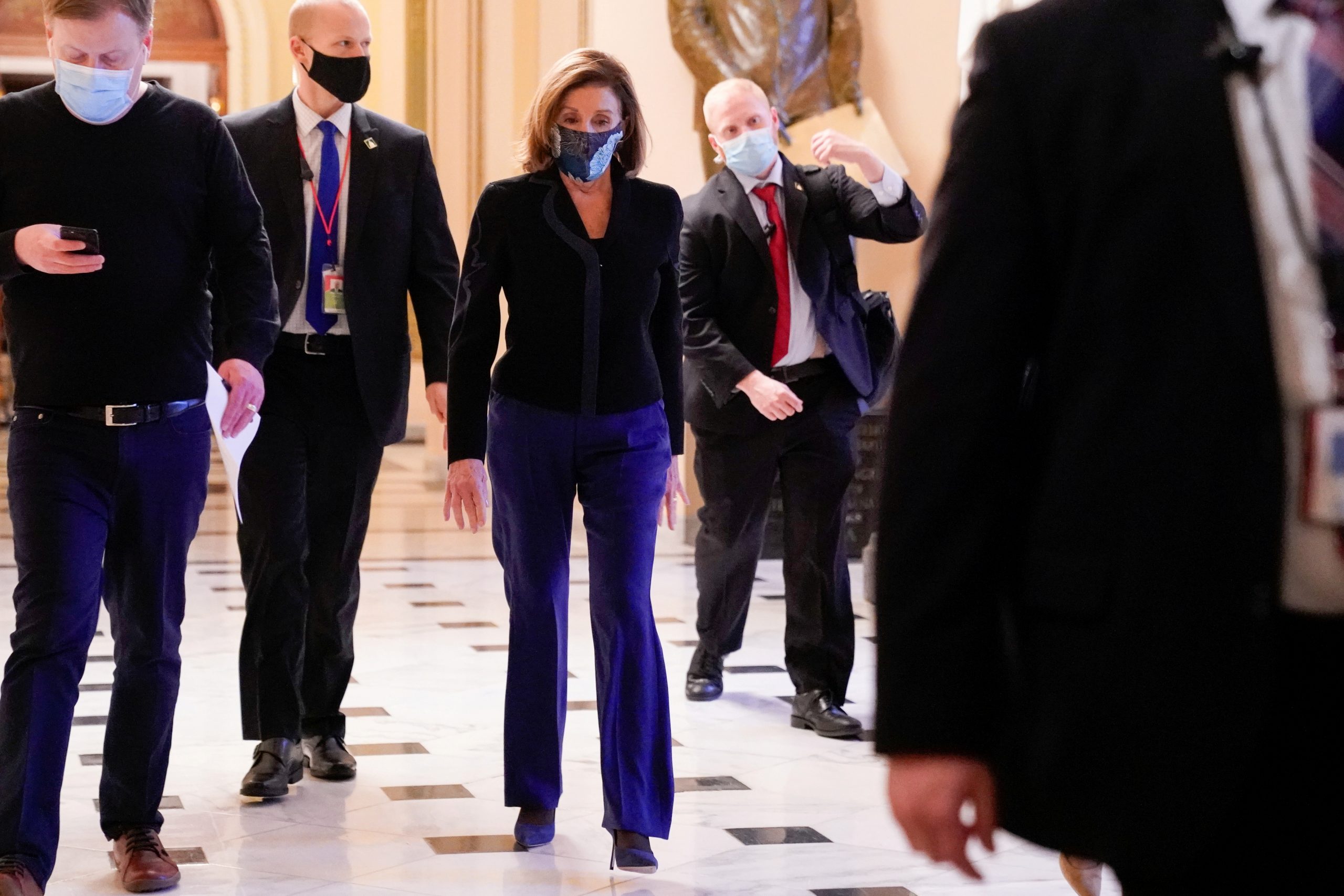After months of feuding and with a weekend deadline fast approaching, U.S. congressional negotiators were wrangling over details of a $900 billion COVID-19 aid bill that leaders have vowed to pass before going home this year.
The legislation is expected to include $600 to $700 stimulus checks, extend unemployment benefits, help pay for vaccine distribution and assist small businesses struggling in a crisis that has killed more than 304,000 Americans and thrown millions out of work.
Congress passed $3 trillion in economic aid last spring, but lawmakers have argued ever since about how much more may be needed. With rates of COVID-19 infections soaring to new highs, and with the American economy showing signs of weakening, leaders of both parties in the House of Representatives and the Senate this month began to compromise in hopes of passing a bill.
“We’re making progress,” House Speaker Nancy Pelosi told reporters on Wednesday evening. But she declined to predict a timeline for finishing the COVID-19 aid proposal, saying, “We’ll be ready when we’re ready.”
Lawmakers were aiming to attach the measure to a massive spending bill that must pass by Friday night to avert a government shutdown.
The House Democratic leader, Steny Hoyer, said that if the Friday midnight deadline is not met, he could envision another stopgap spending bill of three or four days’ duration to keep government agencies open while negotiations continue.
“I don’t want to shut down the government,” Hoyer said.
STICKING POINTS
The rough outlines of the legislation emerged from various lawmakers’ accounts, but negotiators and aides were still working on several sticking points.
Two contentious issues appear to have been left by the wayside. The measure was not expected to include a dedicated funding stream for state and local governments, which has long been a Democratic priority but opposed by Republicans, or new protections for companies from lawsuits related to the pandemic, something high on the Republican agenda.
But an argument broke out over whether to increase reimbursements from the Federal Emergency Management Agency to local governments for expenses related to COVID-19, like personal protective equipment for schools. Republicans were wary.
“If it’s simply a way of disguising money for state and local governments, we’ll have a lot of opposition,” said the Senate’s No. 2 Republican, John Thune.
Thune said the proposed direct payments to individuals would be around $600 to $700 per person, roughly half the amount lawmakers approved last spring. Some lawmakers such as Senator Bernie Sanders, an independent who caucuses with Democrats, were pushing for more.
Lawmakers were discussing $300 weekly in federal unemployment benefits – which would also be half the amount passed last spring, that expired in the summer – and about $330 billion to help small businesses, Thune said.
The $900 billion price tag for the package would be paid for by $600 billion in repurposed funds from other parts of the budget, and $300 billion in new money, according to a senator privy to the discussions.
The U.S. economy is clearly weakening after an initial rebound from recession triggered by the pandemic earlier this year. Consumer spending, buoyed through the summer and early fall by more than $3 trillion in federal assistance, has hit a wall as new lockdowns limit business activity and keep people home.
The Federal Reserve on Wednesday promised to keep funneling cash into financial markets further into the future to fight the recession, even as policymakers’ outlook for next year improved following initial rollout of a coronavirus vaccine.
(Reporting by Susan Cornwell; editing by Grant McCool)



 Continue with Google
Continue with Google